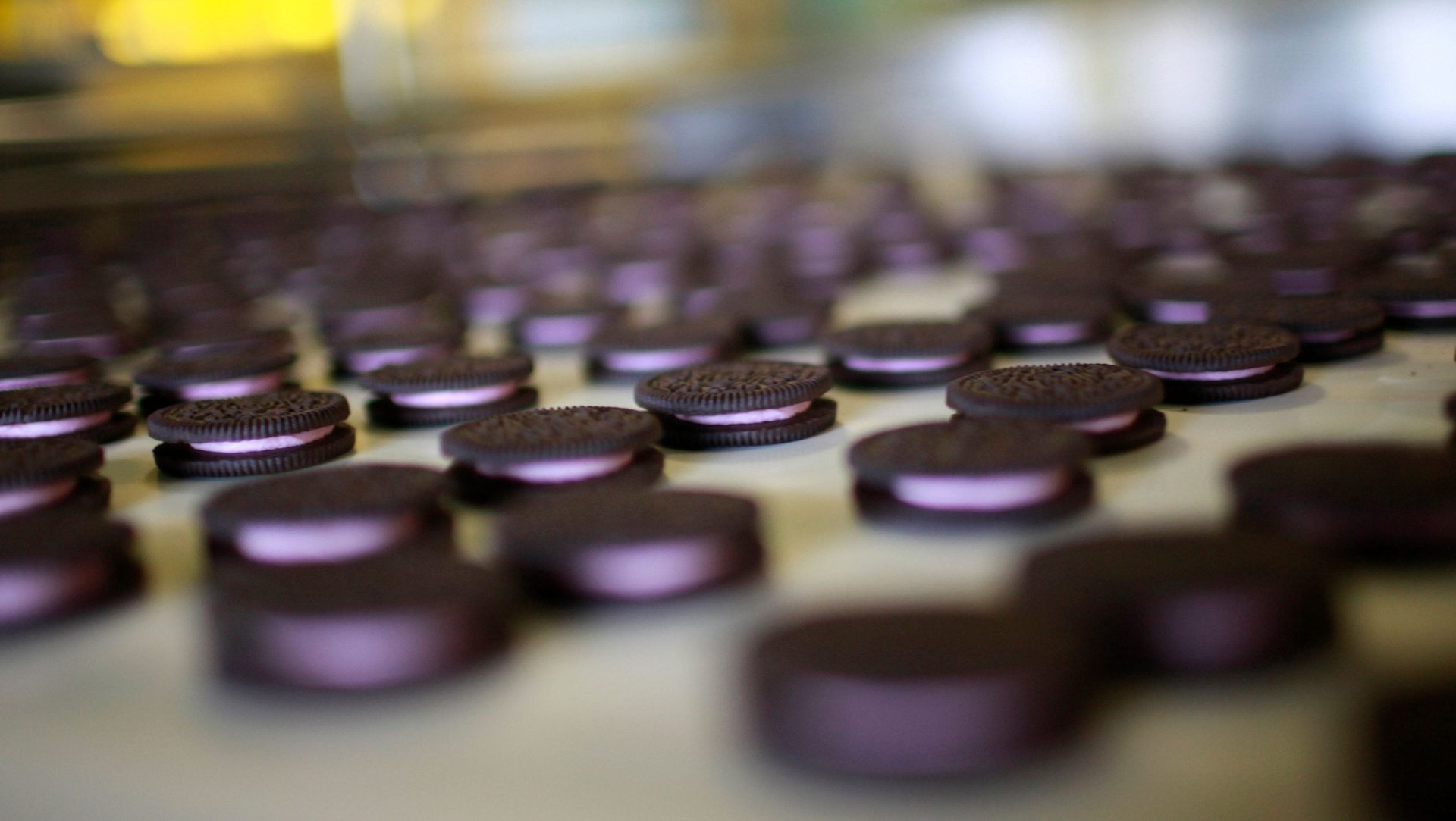Kraft is releasing an Oreo lookalike tailor-made for Chinese consumers
When Oreos came to China in 1996, consumers were nonplussed. The chocolate sandwich cookies, which Americans seemed to want filled with ever-larger gobs of icing, were far too sweet for the Chinese palate. By 2005, Kraft Foods was losing money on every Oreo sold (paywall).


When Oreos came to China in 1996, consumers were nonplussed. The chocolate sandwich cookies, which Americans seemed to want filled with ever-larger gobs of icing, were far too sweet for the Chinese palate. By 2005, Kraft Foods was losing money on every Oreo sold (paywall).
The company regrouped, introducing a lighter Oreo, a rectangular Oreo, and chocolate-covered wafer sticks. At the Kraft Foods biscuit research lab in Suzhou, food scientists experimented with dozens of other varieties, among them an Oreo that replaced the traditional filling with a glob of gum. (That version never made it to shelves). Sales in the Chinese market, languishing at $20 million in 2005, grew to more than $400 million by 2012.
Kraft spun off Oreo and other snacks brands into a new company, Mondelez International, in 2012, and itself merged with Heinz in 2015. Now, Kraft Heinz is taking the lessons learned from 1990s Oreos to Jif Jaf, a chocolate-sandwich cookie the company is releasing in China (paywall). Filling flavors include a traditional chocolate, but also matcha tea, chili, and cheese.
A Kraft Heinz executive brushed off the Oreo comparison to AdAge, saying: ”We are not here to compete with a single brand in particular—there are many sandwich cookies in the market today.”
The company is smart to focus on China, where the market for biscuits and cookies hit $10.2 billion in 2016, according to Mintel (whose March 2017 report on the Chinese biscuit segment devotes an entire section to the “Room for more cheese-flavoured biscuits.”)
Unlike Oreo, each Jif Jaf character has its own personality, part of a brand-development effort led by creative agency Jones Knowles Ritchie (JKR). The matcha character is calm and zen-like, chili is a thrill-seeker, and cheese is a ladies’ man. JKR strategy director Katie Ewer told AdAge: ”He’s someone as irresistible as cheese is.”